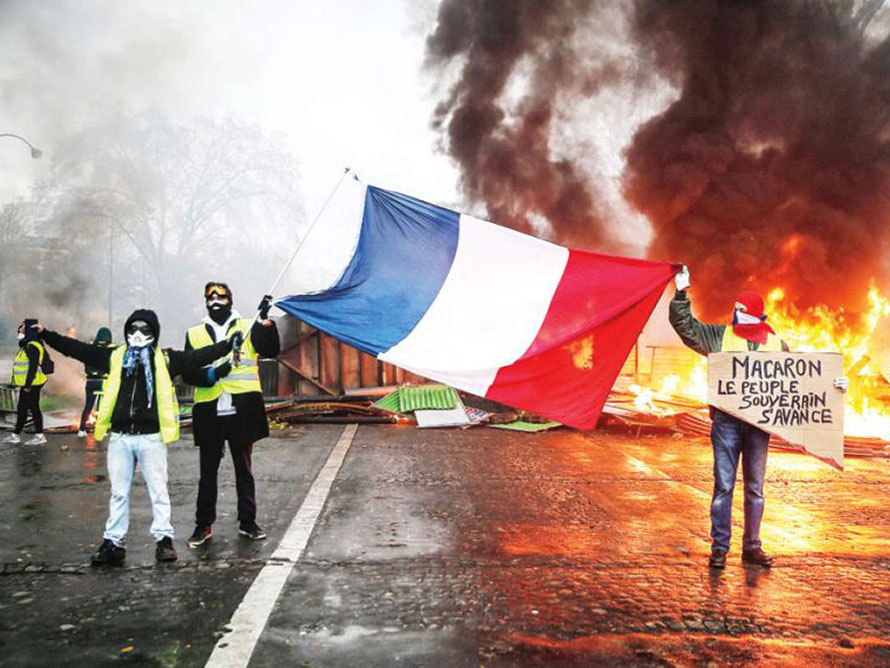Tensions rise in France amidst eco-tax
Protesters wave a french flag
December 18, 2018
France is in a state of emergency after multiple weekends of rioting and protests have occurred due to president Emanuel Macron’s proposed corporate tax cuts and increased fuel tax.
The protesters refer to themselves as the gilets jaunes, or yellow jackets. They get their name from wearing yellow safety vests that the French government requires all motorists to have on them.
Originally, the goal of the yellow jacket movement was to oppose Macron’s new eco-fuel tax, which would have increased diesel and gasoline prices by an upwards of 30%. The protesters felt tha
t this was unfair to the poor who rely on their motorbikes to get to work, since cars are not as common as they are in the United States. When reacting to Macron’s actions, the French populace returned to their revolutionary roots. On Dec. 1, the Arc De Triomphe was vandalized with messages such as “We’ve chopped of heads for less than this.”
As of Dec. 12, the tensions seem to be rising. Every weekend, the yellow jack
ets riot in the streets. President Macron has attempted to reason with the protesters, but he seems to have done nothing. Earlier this week, Macron offered to raise the minimum wage, while also negating the proposed fuel tax. Yet, the protesters seem to be opposed to discussion.
This past weekend, protestersunited in decent numbers, despite the unpreferable weather. Over 3,000 people turned out in Paris alone, versus last weekend’s 10,000. Considering that the past few weekends’ weather was fair, these numbers aren’t all that bad, and they show that a large amount of the protesters are not willing to back down, even in the pouring rain.
People from all political factions seem to be united together against Macron and the French establishment. Their goals may be different, but they are brought together by their hatred for Macron and his centrist agenda. Seemingly, the yellow jackets will continue to fight and riot until Macron resigns.
